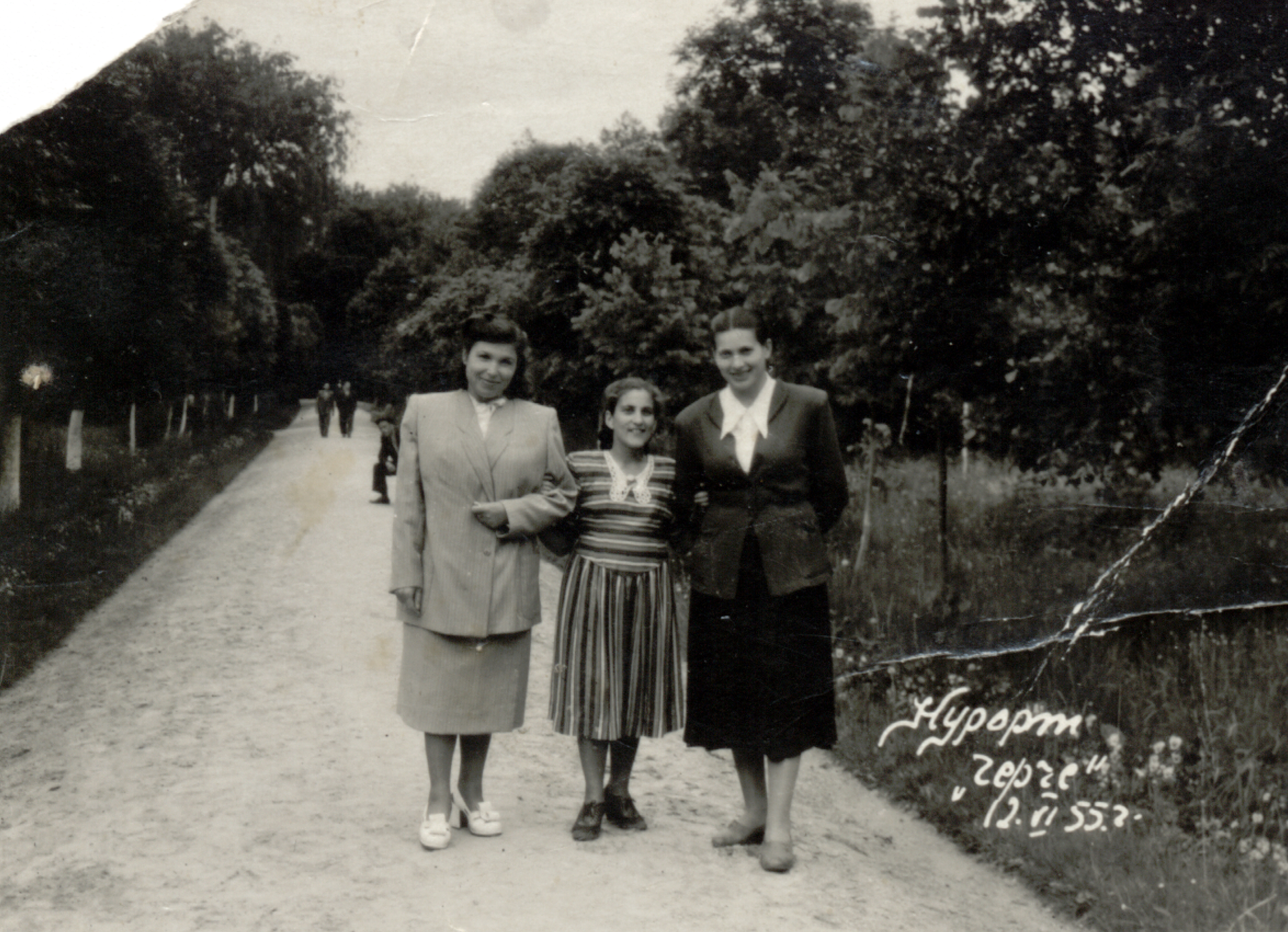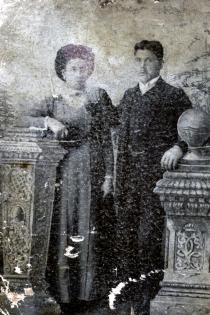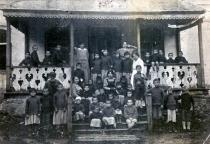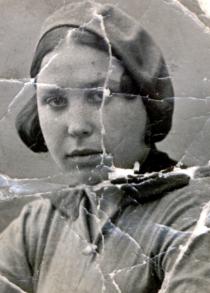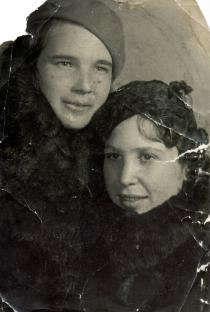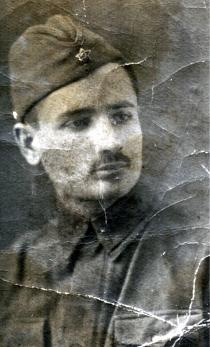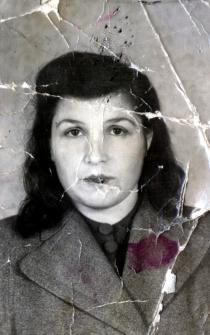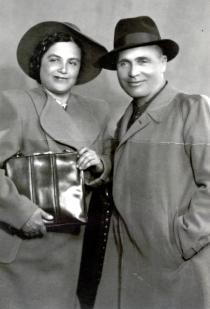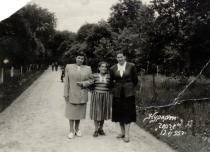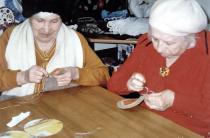This is me with two friends, photographed in a recreation home in Cherche in 1955. I am on the left, wearing a light suit.
In 1945 my father, Aron Gehtmann, began to insist that I got married. I used to see young men before. One of them, Izia from Tomashpol, asked me to be his wife. However, I didn't love anybody. Perhaps, my heart wasn't made for love, or, maybe I had given all my love to Hana. My father made arrangements with a shadkhan - matchmakers that still existed in small towns, even though they did their business secretly. When they found a decent young man that proposed to me. I gave my consent under my father's pressure.
My fiancé Leonid Postrelko was born in 1914. He lived with his parents in Kiev before the war. His father Pinhus and mother Malka perished in Babi Yar in Kiev. Leonid was at the front and received several awards. My father gave us money for my wedding. I had a long, white gown with a long train. We got married in summer 1946. There was a chuppah in the only operating synagogue in Podol. My father wasn't religious, but all relatives from both my mother's and father's side insisted that I had a traditional wedding. The wedding party took place at my cousin Olte's house. My relatives and friends came to the wedding. There was traditional Jewish food on the table including gefilte fish. The guests ate and drank, danced and sang.
Well, we separated after three months. I didn't love Leonid, but I was young and needed a man. He couldn't give me the joy of fleshly love and a few weeks after the wedding I took a lover. After I left my husband, he came to see me and was very angry with me. He wrote a letter to my lover's wife. She came from Uman and took him back home. I remained indifferent to this incident, too: I didn't love my lost lover either. I never saw my husband again. I know that he lived in Kiev and was married. I think he's probably dead by now.
I had a few men in my life, but I didn't want to share my life with any of them. I'm alone. I have no children. It was also due to my illness: I began to walk with a stick in the fall of 1946 when I had osseous tuberculosis. I was confined to bed for two years. I had two surgeries and was declared an invalid. I couldn't do hard work any longer and worked as an attendant in a hospital, as a janitor and, later, I made aprons at home.
However, I always tried to be cheerful. When my condition became more stable I began to attend a Ukrainian folk choir that went on tours to many towns of our country. I often went to health recreation centers on vacation. I could stay there for free. I took part in amateur art activities, liked singing, cracking jokes and playing tricks on people. I had friends and cousins that visited me when I was ill. Sometimes we spent time together. We went to the cinema, walked in parks, celebrated Soviet holidays and had parties.
